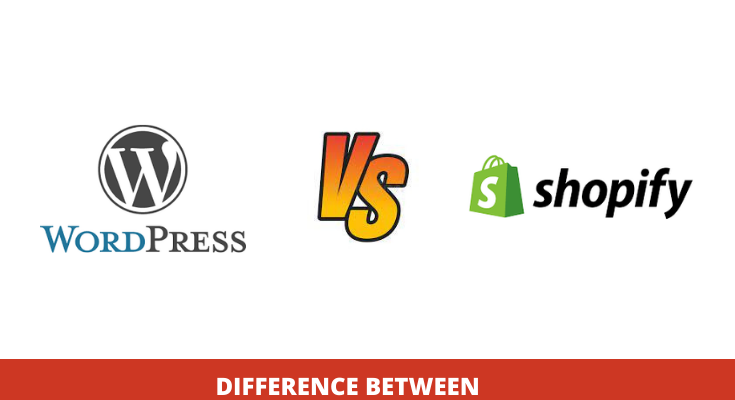If you’re thinking about starting an online business, the question of which platform to use can quickly become overwhelming. The two most popular eCommerce solutions are WordPress and Shopify, but they have several fundamental differences that may influence your decision on which platform to choose for your business. If you’re wondering what’s the difference between WordPress and Shopify and how you can choose the best solution for your business, this comparison will help you out!
Main Difference
WordPress is a free open-source CMS (Content Management System) that allows users to create websites, blogs, online stores, etc. The best thing about WordPress is that it can be used to power any type of website.
On the other hand, Shopify is a proprietary eCommerce platform designed specifically for small businesses. It has many features that allow merchants to manage their inventory, customers, orders, payments, and much more.
Introduction To WordPress
Themes & Plugins: The biggest difference between these two platforms is what you can do with them. For example, if you run a clothing website on both WordPress and Shopify, then your options for templates will be nearly identical.

However, if you run an e-commerce site that features wedding photography on Etsy, you’ll have access to very different templates—and therefore very different functionality—on each platform.
Introduction To Shopify
There are a ton of e-commerce platforms available online. Most are pretty much on par with one another, though some stand out. One platform that tends to catch my eye is Shopify. This popular e-commerce solution isn’t necessarily top of mind, but it could be a viable option for businesses seeking new software or web developers looking for an easy way to integrate e-commerce into their sites.

Difference Between WordPress and Shopify
1. User Experience
The biggest difference between these two platforms is user experience. To a large extent, your experience as a website or store owner depends on how comfortable you are with technology. Many people would be more comfortable using WordPress than they would learn everything that goes into setting up an e-commerce store through Shopify.
If you’re serious about making money with an online business, then it’s worth investing time to learn both platforms so that you can cater to your customer base in whichever platform makes them feel most comfortable.
2. Ease of Use
Out of all of our options, we think that WordPress is one of—if not THE—easiest to use. There are great resources for those who have no coding experience and even better resources for those who do (and in some cases, you’ll need it). For example, if you’re going to create a lot of custom graphics for your site, you might want to invest in learning CSS. These are things that you can learn with practice over time.
3. Functionality
Each platform comes with its strengths and weaknesses. It’s important to choose a solution that best addresses your company’s needs. Here are some of their main differences Digital Marketer lists over 25 points for each system, but I’m just going to list two key features that each one has:
- Ease of Use – WordPress is easier than Shopify because it doesn’t require you to code anything—you can build an entire website from scratch without knowing any coding languages at all. With Shopify, on the other hand, you will need knowledge in HTML/CSS if you want to design a site from scratch or edit certain aspects like colors and fonts.
- Mobile Compatibility – While both platforms have apps available for mobile viewing (like Facebook Store), neither can be accessed easily by phone browsers.
4. Security
Before you consider any other options, think about how secure your website needs to be. If your site is selling or storing sensitive information, such as financial or medical data, it’s best to choose a service that offers SSL encryption. While most platforms offer some sort of security features—like two-factor authentication or mobile apps with two-step verification—make sure you understand exactly what level of protection you’re getting with each provider.
5. Support and Training
When starting a business, you’ll be your tech support. Be prepared to dive into forums, blogs, and product documentation if you run into problems. The learning curve for Shopify can feel steep at first, but some tutorials will help you through it. With WordPress, there is an active community of developers who create thousands of free plugins to extend their capabilities.
Conclusion
When deciding on which platform is best for your eCommerce business, you need to take into account a variety of factors. While some consider just these two main options, there are others out there to choose from as well. WordPress and Shopify aren’t even necessarily in competition with each other; they both have their purposes.
